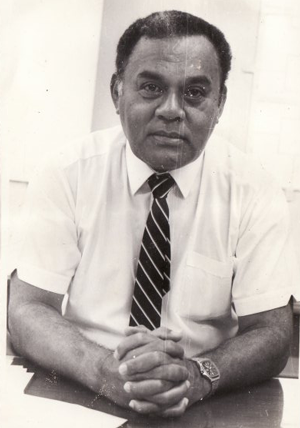 RITOVA, STAN aka STAN WHIPPY
RITOVA, STAN aka STAN WHIPPY
(April 04, 1935 — July 29, 2009)
Pioneering Journalist
Editor
Author
President of the former Fiji Islands Media Association
By R A B (Tony) Snowsill.
![]()
Stan Whippy Ritova, titled Ratu Viliame Ritova, was a noted journalist in Fiji and Australia. Mr Ritova grew up in Nasekula Village, Labasa, Vanua Levu where he was known as Ratu Viliame Lautiki Qomate. Stan was a true son of Fiji! The real Babasiga Lion! He fought to present the truth to all those of Fiji.
Stan told me his grandfather was a cannibal. Maybe he said his great grandfather. I believed him! That sort of statement really impresses you when you are ten! Stan’s grandfather and subjects were strong and feared warriors of considerable note! Stan’s Great Great Grandfather Ratu Ritova, Great Grandfather Ratu Tevita Qomate, and Grandfather, the Tui Labasa, Ratu Viliame Lautiki, secured and made good the paramountcy of Labasa and Macuata Province in the Confederacy of Cakaudrove.
His maternal great great grandfather, Ritova, was one of the two chiefs from Macuata Province and Cakaudrove Province (see map) who signed the 1874 Deed of Session in which Fiji was voluntarily, and wisely, ceded to the British Crown in perpetuity. This, at a time when Fiji could have been taken over by one of several nations seeking a Pacific colony. His mother, Adi Salanieti Tuilomaloma Qomate, was from the mataqali Wasavulu, chiefly clan of Naseakula, Macuata.
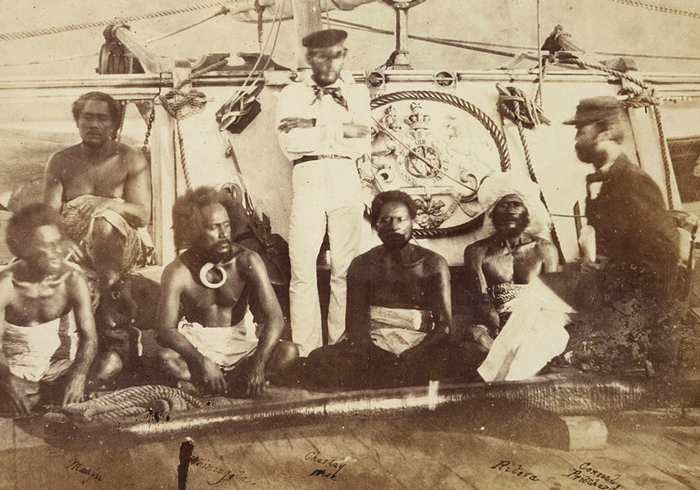
Consul Pritchard favoured Cakobau over Maafu, because of the brutality of the Maafu-led Tongan Methodist Wesleyans. Cakobau (Thakombau) in his time, was as brutal, but by the time William Pritchard arrived at Levuka, Cakobau had begun to modify his traditional behaviour; he had a decade of engagements with missionaries and traders, notably, beche de mer trader, Mary Wallis.
Pritchard’s father was the British consul in Samoa. In Samoa, he acquired an exceptional knowledge of the Polynesian language and traditions. He was appointed the first British consul at Fiji in 1858, and in the same year traveled to England with an offer from Ratu Seru Epenisa Cakobau to cede Fiji to the British crown. He was dismissed from his post in 1863.
September 1858: Maafu’s men massacre 30 of Ritova’s party in Church on Sunday at Natakala, Bua.
Ellen Whippy-Knight comments…
I read a great book which featured Pritchard in it as a really cruel person. The book is the Sea of Glory by Nathaniel Philbrick from Nantucket where David Whippy came from who also gets a big mention. The book documents America’s voyage of discovery, the US Exploring Expedition 1838- 1841 in their attempt to catch up with the British naval conquests… Obviously David Whippy was already in Fiji around 1817 when Pritchard arrived…
Stan’s father was Captain Moses Whippy, ship’s captain and island trader, a descendant of the famous David Whippy, the bold adventurer, from Nantucket USA who created a Fijian dynasty out of Levuka and Wainunu in Vanua Levu. Stan attended Suva Boys Grammar School.
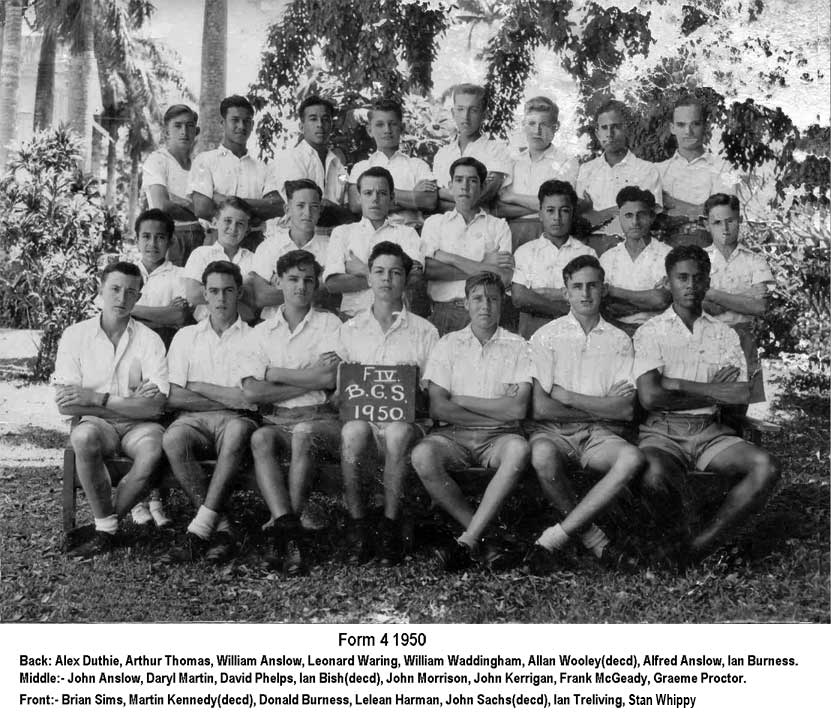
The “first round first bell” rang at the PWD Workers’ Canteen at Walu Bay…an unusual venue for even for amateur boxing. “Seconds out” ten seconds to round one” shouted the time keeper. This was Suva in the 1960’s and we had gathered here to watch the usual Friday night boxing. The card was excellent with some big names listed and with some recognized “up and comers”. A demonstration bout by Moses Evans, a Commonwealth medallist was promised.
As expected Stan Whippy was there for the Fiji Times. It seemed Stan knew all the boxers. He knew their village or where they lived and their whole boxing history to date. Those from Vanua Levu had Stan as their own cheer squad and if they came from the general district of Labasa they had Stan’s special attention. Stan loved sports and boxing in particular! Stan supported, encouraged and motivated these young men to greater achievement within their sport and, in so doing, to achieve more for themselves and, consequently, their families. He helped instil discipline and develop honour within their characters.
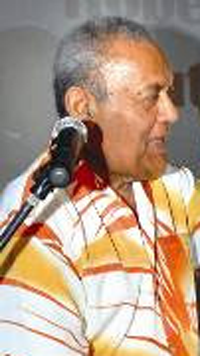
If you didn’t know Stan Whippy/Ritova then you weren’t known in Fiji. If Stan didn’t know you then you really hadn’t spent much time in Fiji or Fiji’s neighbouring islands.
In general if you were going to succeed in Fiji you really needed to know Stan because he had the contacts.
Stan was always generous of his time in seeking to help people and directing them to where they would best find what they sought. Whenever he could he would put in a good word for all he knew.
Undoubtedly, Stan was the man to know and in the know! Stan was the man who knew everybody!
Stan knew me before I knew him because when I was very young our family spent some time in Labasa in the early 1950’s. Stan was born near Labasa and knew my father who was at the time working with the PWD – In his usual cheery voice Stan said one day “You’re Soot and Shirley’s son” – “I know you” – as he slowly nodded his head checking his immense memory of names and faces. This was my first recollection of meeting Stan in Suva when I was a youngster and this was after we moved to Suva in the late 1950s.
Again, in the 1960’s I would often see Stan at the Fiji Times office when I was with my mother delivering her “copy” for her “Shopping Guide for Tourists” or “Shopping Hound” section of the publication. Stan was always so courteous and pleasant that I consistently wondered how he greeted people he didn’t know so well. As a youngster he always made me feel so welcome I felt as if I was a close member of his family! In retrospect I was, as we all were, part of Stan’s greater Fiji family! I later learnt that Stan was always that way. He greeted everyone pleasantly and with respect and courtesy. That was his way! That was Stan.
I pondered the question if there was anyone Stan didn’t like how would they be greeted? With his usual courtesy no doubt!
Stan was very supportive of my mother who was making her way in the then relatively new field of advertising journalism and, maybe because we were ex Labasa, he was always helpful and offered excellent journalistic advice. Moreover, guidance as to how my mother might reach the decision makers at numerous organisations so advertising could be agreed upon and approved. However, in later life I realised it wasn’t just because we were once “kai Labasa” it was because Stan was a kind and selfless man.
Stan lived in Nabua when we lived in Samabula and infrequently we would share the same bus from the Suva Bus station. It was always reassuring to have Stan on my bus and more so when he sat beside me. He was a friendly gentleman and despite my youth, he was 16 years older than I, he took time to acknowledge me and extend his goodwill.
He explained things and treated me as an equal. He introduced me to people who I needed to know, like Bubsie Grant. It was heartening and inspirational to me that here he was talking to a youngster of 8 or 9 or 10 in such a genuine manner. Many older people didn’t communicate with youngsters in those days. However, it became well known to all those I knew over the years that Stan, strongly supported the youth of our Fiji community whenever he could.
One afternoon in 1959 the Samabula school bus failed to arrive at school. The Suva bus station wasn’t that far from Suva Girls (yes that’s correct) Grammar so I walked off down the hill past the police station towards BP’s and the Bus station. Things weren’t quite right and crowds, some angry, had gathered on the streets. Few vehicles were on the roads.
Stan caught me on Stinson’s corner and told me there was trouble ahead – a strike was on – unionists had converged outside the biscuit factory and it wasn’t safe to go to the Bus station. He took me up to the Methodist Church Office in St Fort Street and called my mother to come and get me. He then “took off” to cover the strike. Stan was a considerate and caring person always looking to help people whenever he could.
As children we use to collect bottles and sell them at the local Chinese store opposite the Samabula theatre. One penny for 4 bottles or a halfpenny for two. Yes we had halfpennies in those days!

The shop owner would fill the bottles with his own home made delightful and effervescent ice cream soda or my favourite blue lagoon! (It left one with a blue tongue). My neighbourhood friends were all ten or under and we were an eclectic and diverse group. Samisoni, Anil, Pratap, Ali, Imosi and others and I hunted for discarded bottles all around Samabula “three and a half mile” on many Saturday mornings. When we had enough bottles in our sugar sacks we sold them seeking to raise the sixpence entry fee to the esteemed Samabula Theatre. (The long bench seats there were very hard and the overhead fans too far away and too slow to make any difference in Suva’s heat!)
Bottle collecting was hot work in the stifling and humid and oppressive heat for which Suva was infamous. Some of the earthen and grassed drains were deep and it took three of us to pull each other out after retrieving unwanted bottles. One particularly hot day our “gang” had cashed in our bottles and were thruppence short of the theatre entry fee. We were all sweating and our faces evidenced our exertion.
Stan walked out of the shop next door and quickly sized up our situation. He bought us each a cooling, and highly regarded, tasty penny ice block – to help revive us- and walked us across the then unpaved, dangerous, dusty and gravelled “Kings Road” to the theatre. The theatre owner, Mr Bubsie Grant, was a short but large man and was there as always.
“Bubsie”, said Stan, “these boys are thruppence short, can you help them”?
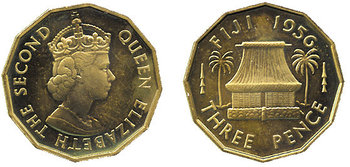
“If I let all these boys in when they are short then I will go broke” said Bubsie in a firm voice (but there was an underlining generosity in Mr Grant’s voice which he couldn’t hide – really, he was playacting).
Stan said, “That’s OK I will pay the difference today” and he did.
So we saw our favourite John Wayne star that day and to us Stan was a legend from that time on. He only knew me from a group of about six but he helped us all. Stan’s generosity was, as I established in later years, legendary. [Over the years Mr Grant, as he was known to us, often let us in when we were short of the full entry fee].
Journalists, as we all know, are poorly paid. Local journalists in Fiji in those days were exceedingly poorly paid. However, Stan was well known for his generosity and was always willing to help someone out financially, to pay a bus or taxi fare, to help get someone home or to hospital or wherever.
In the 1970s Stan would occasionally drop into the then Suva Travelodge, where I was working, when he “had a column to fill” or it was a slow news day/night. “Any news Bro; Tony, anyone interesting in the hotel?” he would inquire. “Well, we have Mr So and so in”, I might say and Stan would reply knowledgeably and without malice, “Oh yes, he is looking at developing such and such but he’d got no real money himself”. Stan already knew all about whoever it was.
“I did a story on him when he came here last year” he would say in his usual informative manner.
Towards the end of my close shift at midnight or 2 am, if Stan turned up, he might say – “Bro, call Peter, let’s go to the Dragon the music is good there tonight, Tom Mawi is playing”. [For those who haven’t worked the close shift or overnight it is very difficult to “unwind” after work and some form of relaxation is needed before one can sleep successfully thereafter.] Anyway, that’s my theory and I am sticking to it!
So when we had handed over to the hotel’s overnight staff we would walk over to the Golden Dragon Night Club. Suva’s finest for many years! It was 192 steps away but because Stan knew 7 out of 10 people on the way and some were related to him albeit distantly, it could take 30 minutes to get there. All would be met sincerely with a generosity of spirit that was inimitable. Of course formal introductions (which often involved the full family history of those being introduced) would take place and then farewells all of which took time when done correctly which Stan did so well.
I often debated with myself as to how many people in Fiji weren’t related to Stan! Invariably, we only heard two songs before the Dragon closed.
When we arrived at the Dragon Stan would talk the ‘Bouncer” out of a cover charge and in we would go. As employees of Suva Travelodge we had negotiated that right – well, but it didn’t matter. Anyway there was no way Stan was paying as he knew all the Ho’s intimately.
Stan loved his music and was a connoisseur and aficionado of all music and especially enjoyed skilled guitar playing. Sometimes he would join the band and his own expertise was evident. He could sing well too and could incite the clubbers there particularly with his Fijian songs. Stan had a fine voice and his vocal pitch and timbre were excellent. He could have been a professional! Actually he was before he became a journalist. However, the point is that many musicians and singers owed not only their inspiration but also their start to Stan who gave freely of his direction and guidance to many who sought a start in the music profession or business. A few newspaper column inches from time to time also helped.
After the Night Club closed we were still wide awake so together our group occasionally indulged in some “grog” at Gaunavou Taxi’s on Carnarvon Street behind the Dragon. As dawn broke we would go home and Stan would apparently just go to work. He didn’t really have time to sleep!
Stan’s time at the night club and the taxi rank were well spent. Stan was forever chasing a lead or collecting some “background” for a future or current story. He gathered snippets of information from many sources which made his newspapers stories that much more interesting and insightful. Everyone enjoyed Stan’s newspaper articles! They contained that extra insight.
Was it appropriate that we spent time outside Gaunavou Taxis as this word loosely translated in Fijian means “new age or new time”? Certainly Stan was a man of the “new age and ahead of his time”.
At Suva Travelodge one night we had a group of 40 resident US servicemen on R&R who had experienced difficulty with the alcohol content of Fiji Beer. They were out of control and methodically smashing up the bar having arrived back at the hotel from a harbour cruise during which time they had consumed “a few”. We had refused them further service and they didn’t like it! The police were called but two patrolmen, three doormen and Peter (maybe not) and I weren’t going to be able to pacify this group.
Stan arrived as all this was going on and quickly sized up the situation. Stan made one telephone call and in 10-12 minutes, maybe less, we had the Police riot squad from Nasova Barracks onsite – many just partially clad in their riot gear. Well it was on, and Stan helped out here and there but also found time in the melee that resulted to take some excellent photographs – so he showed us later. The incident never made the newspapers for “diplomatic reasons”.
“It’s not only what you know Tony”, Stan said, “but who you know”. “If you help people then one day they might help you, but don’t expect it, and, certainly don’t just help them now in case you might need their help in the future”.
To a young man this was sound advice which I often considered. Stan was always a diplomat!
Stan used his great knowledge of Fiji to benefit our Fiji society. Over the years he would intervene and stop many a quarrel and save countless persons from a beating.
“Hey, I know your father” or …. “Your chief: they wouldn’t want you fighting like this; stop it go home, don’t spoil your name or your matagali’s name” Stan would say, and another street altercation would be stopped. Invariably, no doubt because of his innumerable contacts, I recall, he was first on the scene of an accident or incident and would arrange the crowd to administer first aid and then to call the police or ambulance or more often than not a taxi to take people to hospital. It was indelible in Stan’s nature to help whoever he could whenever he could.
Critical to one’s existence in Suva, in the heat and humidity, was the occasional very cold beer. It was usually a tie between the Defence Club or the Saloon bar at the Club Hotel (wasn’t this also called the snake pit?) as to which had the coldest beer. The Club Hotel usually won and besides it was on the main street and, surprisingly, the closest to the Fiji Times offices.
Further, as I understand it, the amber fluid dispensed at the Club Hotel had a special added quality. Sometimes at the bottom of every fourth glass, but definitely the fifth, one could consistently find inspiration! Inspiration that helped overcome a mental block, or “writers or journalist’s block”. This I believed for I had it on good authority from not only Stan, but, also, one Robert “Bing” Keith Reid.
Stan loved sport! Any sport! One quiet Saturday afternoon we took a stroll across to Albert Park. The hotel was quiet. A group of younger people were playing hockey I seem to recall against a visiting New Zealand (NZ) team. The Suva team’s coach was exasperated by the poor showing of his team. They were down three nil. He knew they could do better! At half time the team appeared not to be responding to the coach’s words. Indifference seemed to take hold. The coach turned around to the sideline desperately seeking encouragement and the crowd’s support. He saw Stan and said “Stan, please, tell them they can still win”.
Stan hesitated only a moment and walked over and said in his measured and most formal voice, “Boys, you are playing for Fiji, (then more slowly) you are playing for Fiji”.
The NZ’ers didn’t score again .The Suva team won by one goal! Stan was an inspiration to many young people and had the charisma to go with it.
Over his many years as a devoted and diligent journalist Stan was escalated to Legend status by his colleagues, peers and all who enjoyed the written word. He “did it all” as far as journalism was concerned as is evidenced by his being a chief reporter and later editor of different newspapers. However, his dedication to journalism was only surpassed by his dedication to his beloved Fiji. He constantly worked towards making a better Fiji for all. Much of this mission was behind the scenes and without self credit.
What’s more it isn’t easy being a journalist. Every day you have to produce the facts to a deadline. The facts are often hidden behind a multitude of untruths. Every time you write your credibility and reputation are “on the line”.
Like friendship, by his actions Stan convinced us all that the essence of journalism is trust and this is achieved by developing a quality relationship and deep communication. Stan quickly gained one’s trust which seemed a more automatic reaction to his unique aura or mana. A distinguished aura and mana he certainly had about him.
As I recall Stan never really wrote a disparaging word about anyone. He just placed all the facts in front of his many readers and left it to them to decide. He never used his considerable media influence to hurt anyone. Sure he could write a headline and he could ask the hard questions of people he interviewed and things could get feisty but there was never any malevolence from Stan.
Well, to be truthful, once I recall he did say after interviewing some “big time” overseas “luminary” at Suva Travelodge, “Bro, that feller is a boci levu” as he slowly shook his head in wonderment as to how this luminary had every achieve the status he had. In a short period Stan’s considered observation turned out to be precise and accurate!
These few recollections of mine and the valuable experiences and knowledge gained from Stan must have been multiplied more than a thousand times given all the people in Fiji whom Stan knew, helped, motivated and inspired.
Stan was not only a passionate journalist but a passionate human being! He loved life, his family, his many friends, his job, his matagali, his Vanua, and his country. He was committed to his family, friends and job as a journalist. He loved all these with great ardour and not necessarily in the order here written. He was dedicated to his country.
Stan worked tirelessly to make Fiji a better place. He would spend hours speaking to foreign journalists and associated and so called “experts” carefully explaining to them what Fiji was all about, why things were as they were, so that they could get the correct perspectives in their stories sent overseas. He would convey the needs and wants of the populous to our local and overseas politicians strongly and relentlessly advocating for any group that sought his help and for many which did not but he knew were worthy.
So, above all, it is unmistakable, that Stan was a patriot whether or not he knew it. His motivations always involved the public’s greater good; for the good of Fiji’s people. Stan served his country in countless spheres of endeavour and often on a daily basis. Amongst his many contributions to Fiji’s society he helped establish the Kidney foundation of Fiji and the Fiji Institute of Journalism. This latter organisation was formed so as to encourage young people to aspire to achieve in this difficult and demanding vocation. The former because Fiji needed a dialysis service. His work eventually led to the eventual establishment of the first kidney dialysis centre in Fiji in 2008. Stan generously gave his time, support and his considerable public relations expertise to numerous sporting and civic organisations, often in the form of publicity and expert media advice, which helped those groups become established or to advance.
Stan walked and talked with Princes, Kings and the common man (and even politicians) without apprehension because he treated each with respect. All these people had a fundamental respect for this great man.
The final bell has sounded on the last round of the life of this great Fiji patriot and a Fiji legend, a legend of the whole Pacific Islands – legend in so many ways. Stan has left us! The fight is over!
When I next stand to watch the Fiji flag raised or the Fiji anthem played I will remember the true sons of Fiji who, to me, were patriots. Along with names of the esteemed will be that of Stan Whippy/Ritova, great grandson of the formidable warrior Chief, Ratu Ritova. Our friend Stan Whippy/Ritova was also a redoubtable warrior and fearless fighter in so many spheres of Fiji’s life, for all of Fiji and all of Fiji’s peoples, for the betterment of Fiji.
Stan didn’t contribute to the betterment of Fiji’s society for money, medals or acclaim he did it because of his love for his country. For Stan was a true patriot!
How appropriate are these words?
‘We lost the irreplaceable centre of our Fiji family and joyous light in our lives, but the inspiration of his faith, optimism, and perseverance will live on in our hearts forever ….He loved his country and devoted his life to serving it to the best of his ability” (Adapted from the Kennedy family statement at the recent death in their family)
Now the keenly eyed Great Frigate birds (kasaqa) flying with the Pacific Royal Albatross, both aerial masters, guard the profoundly beautiful sapphire and aquamarine reefed coastlines of Cakaudrove and Macuata. They glide above these cerulean seas, verdant lands and exquisite reefs and one feels there also, deservedly, soars Stan’s spirit. Always watchful over the lands that he, like his forefathers before him, loved, treasured and defended.
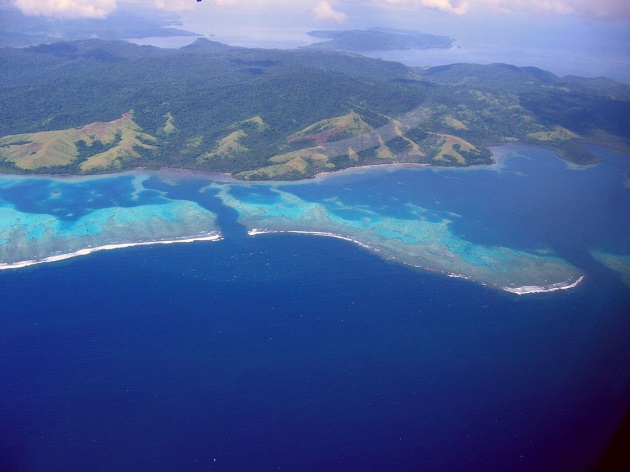
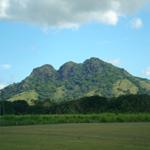
From Labasa’s enigmatic and mysterious “Uluibau” – The Three Sisters (mountains) – it is said the spirits of “noda Kawa iliu”, our ancestors, can see Udu Point and sometimes, those deserved, can see beyond that to M’Bulu (the “heaven” of his Fijian ancestors)! It is here, in these aesthetically pleasing places, we can envisage that Stan’s spirit soars and resides ever watchful over the people, lands and waters he so dearly loved.
Moce Stan, we will all miss you,
Loloma Va Levu.
Tony Snowsill August 2009
![]()
Entry By: R A B (Tony) Snowsill, Chatswood, Sydney, New South Wales, Australia.
Book: In 1987, Ritova was co-author with Eddie Dean of Rabuka: No Other Way; His Own Story of the Fijian Coup, a biography of Major-General Sitiveni, Prime Minister of Fiji from 1992 to 1999, at the time a relatively unknown colonel who had recently overthrown the coalition government of Dr Timoci Bavadra.
POSTSCRIPT (Ed.):
Stan won numerous journalist and TV awards for his work and was recognised with the Lifetime Achievement Award at the Fiji Awards for Media Excellence (FAME) in 2007, creating a ripple of laughter on receiving the award when he said he was third awardee and his predecessors only received it after they had died. The two were Sir Leonard Usher and Robert Keith-Reid, both of whom he had a long friendship with.
